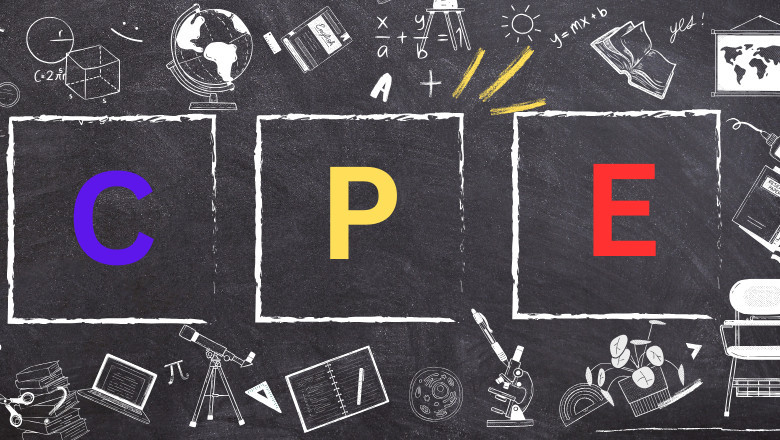views
Maintaining compliance with Continuing Professional Education (CPE) requirements is extremely important for every Certified Public Accountant (CPA). The difference in CPE choices for CPAs could lead to a smooth license renewal season or penalties and suspension. Compliance appears simple, but without proper consideration and intelligent planning, the risks will swiftly follow. Read on for expert advice to top off your knowledge and keep your career protected.
Know Your State Board Requirements
Every state has its little CPE laws. Some mandate a specific amount of hours for ethics training, while others mandate courses in particular technical areas. Go through your state board's requirements carefully once a year. They get updated from time to time, and one little detail could cause you to fall right out of compliance.
Stay Ahead of Deadlines
One common malpractice CPAs engage in is completing CPE hours at the very last moment. This rush, however, destroys any possibility of making a good choice about which courses to take, may lead to missing deadlines, and is a source of extra stress. Early in the year, mark those key dates on your calendar, and map out a timetable that allows you to spread work out over time. This way, panic will be absent during your learning, as energy and focus will instead go towards absorbing course material.
Choose NASBA-Approved Providers
Not all courses are NASBA-approved, so if you want things to count toward CPE, check on the NASBA and best practices. Always check whether your course provider is NASBA or state-board recognized. If you take an unapproved course, it means none of those hours count, which is somehow like starting all over again.
Prioritize Ethics and Technical Courses
Many states require CPAs to complete a certain number of ethics hours within any given reporting cycle. Additionally, technical courses in areas such as auditing, tax, and accounting are generally assigned more weight. Prioritize these topics early in your CPE planning to assure compliance with these important components.
Keep Detailed Records
Proper record keeping is very important when it comes to preserving your documents. Make sure you compile a file, which includes certificates of successful completion, a description of courses taken, and proof of accreditation. Some state boards randomly audit CPAs, so having tidy records will help you fly through the inquiry stress-free.
Don’t Overlook Emerging Topics
Sticking to traditional courses is far less risky, with emerging subjects like cybersecurity, sustainability reporting, and the role of artificial intelligence in accounting crying for relevance. Seeking knowledge in fresh areas not just gives CPE credit but also gets you to stay relevant in a quickly transforming profession.
Take Advantage of CPE Packages
Many providers offer CPE Packages that bundle different accredited courses together, usually at a discount. Generally, ethics, technical and emerging topics are all included in these packages. This simplifies compliance, saves money, and lets you tailor your learning to meet your professional goals.
Conclusion
Confidence in the CPE compliance process does take the stress out. Learning your state requirements, planning ahead, and assuring that you will take courses via NASBA-approved providers will make your life a lot easier.






















Comments
0 comment